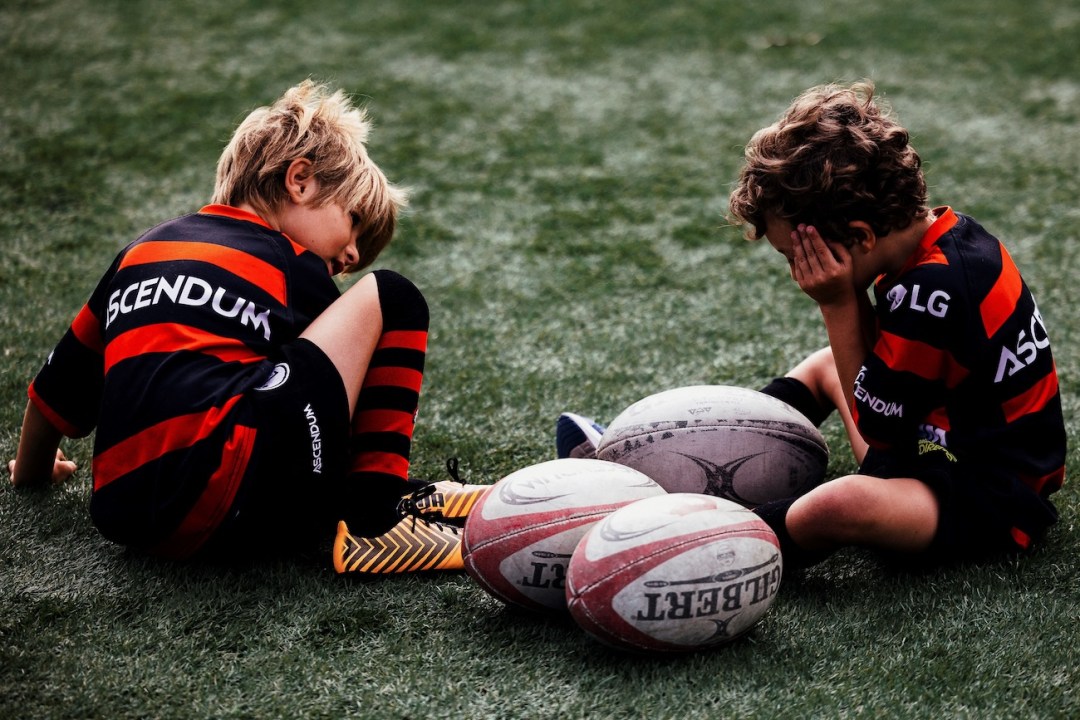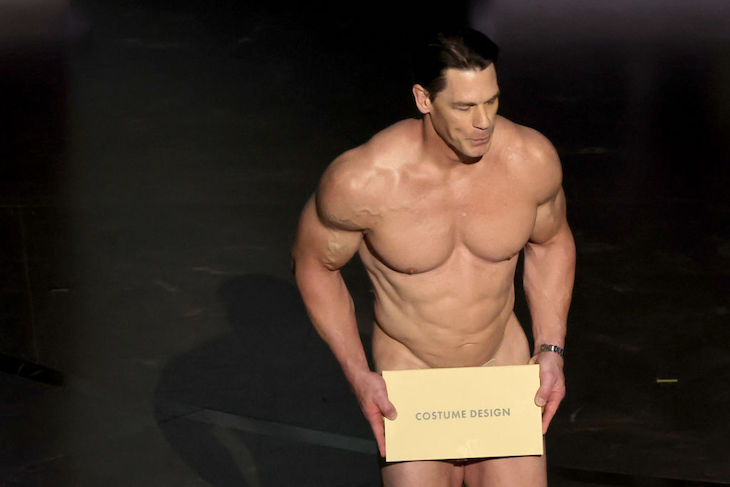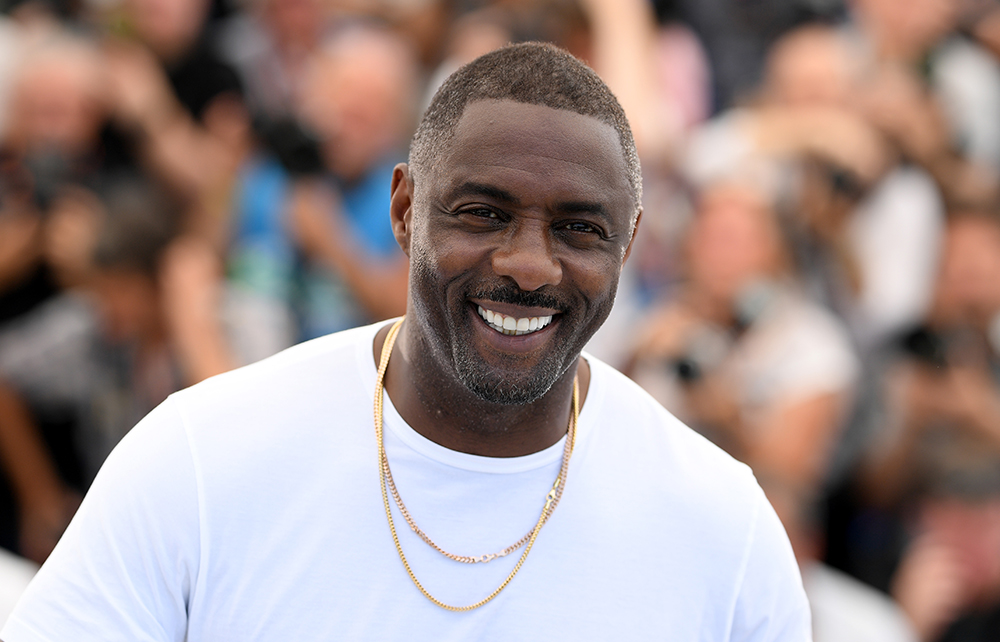(sublinhados meus)
Stop calling rugby ‘child abuse’
It’s time to tackle the myths about the game

The look on the doctor’s face as he showed my parents the X-ray of my skull was quizzical but reassuring. ‘We were a bit worried by this line on the left,’ he indicated a very thin line from the top of the cranium, straight down. ‘But we saw that there is a line exactly similar on the other side of the X-ray, which persuaded us that it was a problem with the film, not your son’s skull’.
We were free to leave, with advice to watch out if I felt sleepy or sick for the next few days. I did get a bit of time off school. Rugby had brought me to A&E. I was a committed but not very adept full back, which meant, from the age of about ten, facing down one of those lumbering giants all schools seem to produce, as he burst through my teammates’ defences. Inevitably I would be flattened as he thundered towards the try line. Rugby was never my favourite sport to play, but even occasional participation led to more doctors’ visits; one occurred after coming round on the field and attempting to take my place lining up for the wrong team. My parents steered me towards football, and I became less of a regular at casualty.
You might think that, with a personal history like that, I would welcome news of an academic article on rugby in schools with the eye-catching title ‘Sport Structured Brain Trauma is Child Abuse’. The authors of the report, Eric Anderson, Gary Turner, Jack Hardwicke and Keith D. Parry, know that putting it like that is bound to get them noticed, and it has worked.
Can they really mean it, though? The violent element in rugby has always been controversial. That is one of the reasons football came about. When some clubs rejected the proposed rules of the new FA in 1863, handling the ball was not the problem. It had more to do with threats to the ‘manly’ aspects of the version of the game played at Rugby school and elsewhere. Today’s academics worry mainly about the effects of tackling, but back then there was a longer menu of violent practices, including hacking (shin-kicking, often drawing blood) and tripping. As one Old Rugbeian, representing Blackheath rugby club, put it: ‘If you do away with it, you will do away with all the courage and pluck of the game, and I will be bound to bring over a lot of Frenchmen who would beat you with a week’s practice’. They weren’t having that.
Professor Anderson et al seem to think we haven’t moved on much since then. Rugby (and boxing) for children should be viewed as child abuse, they argue, because ‘intentionally structuring sport to result in impact to the brain is to intentionally subject a child’s brain to be hit.’ Those who question the idea that brain trauma is rife in schools rugby, they argue, are probably only doing it because they are in Big Rugby’s pocket. ‘They tend to be scholars funded by sporting organisational bodies… the commercial interests of this group should be examined with the same suspicion as academics who were historically funded by the tobacco industry’.
I’m all for following the money, and would struggle to make a case for children boxing, especially if heads are targeted. But are they right to say that rugby is ‘intentionally structured to result in impact to the brain’? No. The intention of the rule makers, coaches and players of the game is to avoid such impacts. The lowering of tackling heights to reduce ‘head to head’ contact in the community game last year had that goal specifically in mind. You might argue that those intentions don’t reduce the risks enough (naturally, the authors of the paper do argue that), but to say that they do the opposite – and then to call it child abuse – is not academically sound. In fact, it’s not far removed from the level of discourse which consists of calling someone you disagree with a ‘paedo’. Laurence Fox could tell you how that works out.
There are risks in rugby, as there are in other children’s activities, including football, cycling and swimming, but no one advocating for those sports is intentionally subjecting children to harm. Quite the reverse. Responsible adults assess risks to children and act accordingly. Undaunted, the authors describe encouraging kids who show some talent as ‘grooming’.
The way the academics present their research also makes the potential problem sound much bigger than it is. They base it on a previous article, which found that ‘Rugby Union was delivered in 81 per cent… of state-funded secondary school physical education curricula’ – an impressive 234 of 288 schools questioned. That is a respectable sample, but it does not quite reflect the reality. If it did, you might hope England would be better at the game. Actually, rugby is simply one sport among many introduced in PE classes. A more representative way of looking at the proportion of schools that play rugby ‘seriously’ is to note that the England Rugby Football Schools Union (ERFSU) has roughly 3,000 members, from primary and secondary (state and independent) schools, out of about 24,000 schools in the country: more like 12.5 per cent.
So what we are in fact being asked to consider is whether, when our children line up shivering for PE and the Brian Glover type says ‘today I’m going to show you lot what rugby is’, he should be encouraged to stop short of explaining how to tackle. And guess what? He already is. If pupils ‘are new to rugby… don’t currently enjoy contact or wish to do contact… want to develop agility, decision making and sport specific skills such as passing and kicking’, they could be introduced to a non-contact form of the game. Those suggestions come not from the overwrought prose of the academic paper, but the ‘Secondary Schools New to Rugby’ leaflet, published by the ERFSU. Young players can learn to tackle – and stay out of A&E – later.
























